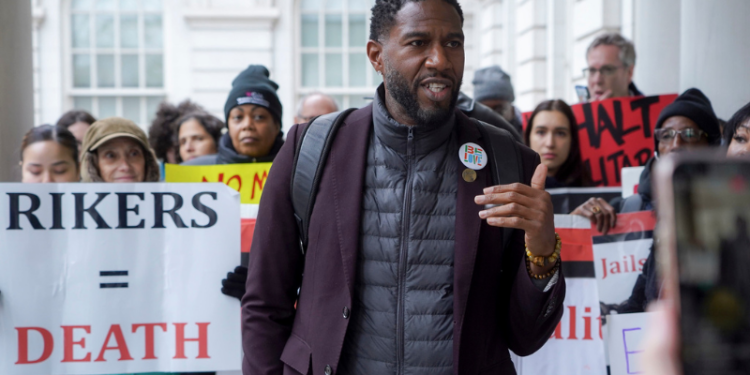On Monday, December 9th, the New York City Council and Public Advocate Jumaane Williams filed a lawsuit in state court to invalidate Mayor Eric Adams’ emergency executive orders suspending Local Law 42. This law, passed last December over the mayor’s veto, bans punitive solitary confinement in city jails. The lawsuit argues that the mayor’s orders represent an unprecedented and unlawful abuse of power by declaring a state of emergency to override the democratic process.
Mayor Adams issued Emergency Executive Orders 624 and 625 on the eve of Local Law 42’s implementation, citing potential dangers to jail staff and inmates if the ban were enforced. The law prohibits extended solitary confinement, allowing only a four-hour “de-escalation” period, and also limits the use of physical restraints during inmate transport. The mayor’s orders modified these provisions, claiming that flexibility was needed for jail safety. Since then, the orders have been extended every 30 days.
Speaker Adrienne Adams criticized the mayor’s actions, stating, “The democratic process of lawmaking cannot justifiably be declared a state of emergency.” She added that solitary confinement causes lasting psychological harm and undermines public safety. Public Advocate Williams echoed these concerns, describing the orders as “desperate power grabs” and asserting that ending solitary confinement is a moral imperative.
The lawsuit, backed by organizations such as the Bronx Defenders and the New York Civil Liberties Union, seeks to vacate the orders, labeling them “arbitrary, capricious, and contrary to law.” Advocates argue that the executive orders undermine the Council’s legislative authority and ignore the documented harm of solitary confinement, which disproportionately affects Black and Latino inmates. Research has shown that even short periods of isolation can significantly increase the risk of self-harm and suicide.
City Hall defended the mayor’s decision, citing the need for security measures at facilities like Rikers Island. However, opponents argue that the mayor’s justification does not meet the legal threshold for emergency powers under state law. They fear the orders set a dangerous precedent, enabling future mayors to bypass legislative processes.
The lawsuit highlights a broader battle over jail reform and executive authority, raising critical questions about governance, human rights, and public safety in New York City. The case now awaits judicial review, with both sides preparing for a contentious legal fight.










